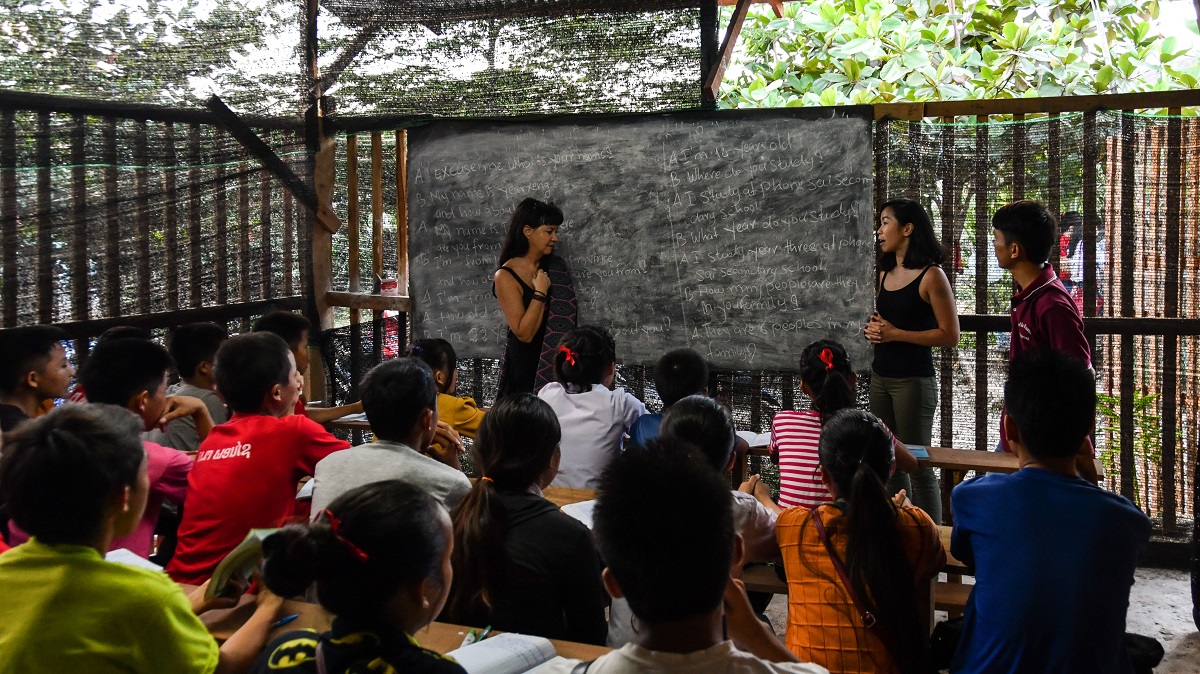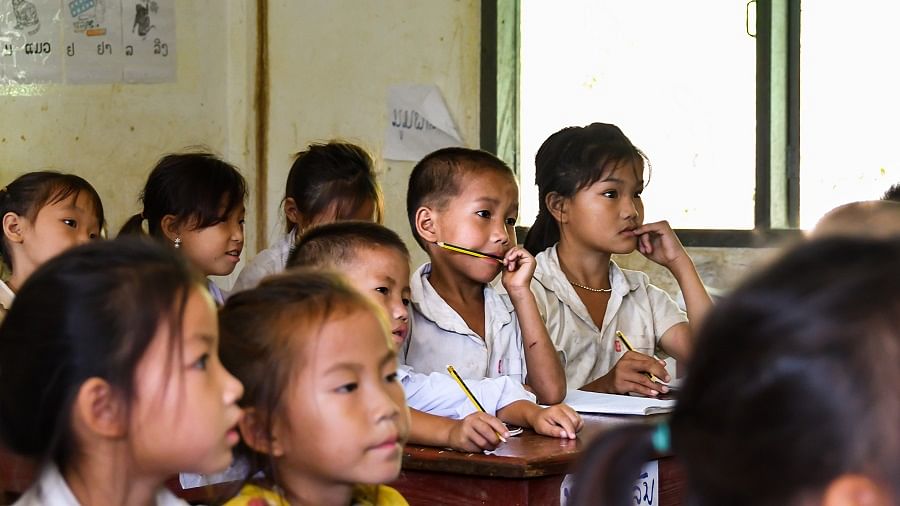BRANDED CONTENT
Growing through hands-on learning
Field trips in selected programmes at the Singapore campus of James Cook University enable students to gain real-world experience

Field trips organised by JCU helps students to see how the theories they learn in the classrooms can be applied in real-life situations. PHOTO: NIKIL KOTTERI
Beyond academic achievement, a well-rounded education should prepare students to successfully navigate the real world after graduation.
This philosophy drives James Cook University (JCU) to integrate real-world learning opportunities into its curriculum.
Students are encouraged to see how theories they learn in the classroom can be practically applied in real-life situations during field trips in programmes such as Bachelor of Business and Environmental Science and Bachelor of Arts (Majoring in Psychology Studies).
They also develop important values for life that cannot be taught, but must be experienced. This empowers them to grow and succeed holistically.

Learning by doing
For instance, JCU's Tropical Marine Ecology and Coastal Impacts module in Bachelor of Business and Environmental Science involves a 10-day field trip in Phuket, Thailand.
Dr Neil Hutchinson, a senior lecturer in environmental science, explains: "As the subject focuses on the ecology of marine organisms and impacts on marine coastal assemblages in the Andaman Sea, the students need to see this first-hand by physically interacting with the environment."
Activities include visits to fish landing ports and aquaculture facilities to observe real-world practices,as well as protected and non-protected habitats such as coral reefs and mangroves. These allow the students to assess the impact of formal protection on these ecosystems.
In the evenings, there are lectures, presentations and group research projects to work on.
Students are required to write a project report after the field trip, which carries more weightage than the exam. This allows them to develop a deeper appreciation for the subject matter, and better contextualise their knowledge and experience in the real world.
Dr Hutchinson says: "The field trip provides real-world learning that enables students to develop the skills and confidence necessary to quickly synthesise ideas, critically evaluate information from a range of sources and apply their learning in a flexible, holistic manner to solve real-life situations."

Real-life impact
Designed for students who have previously taken at least one cultural anthropology subject in Bachelor of Arts (Majoring in Psychology Studies), JCU's Tropical Philanthropy project led by associate professor Anita Lundberg engages students and alumni in international field practice during short voluntary trips in Southeast Asia.
Prof Lundberg says: "Anthropology is important as it helps students to be aware of ethnocentrism, or the mindset that one's own culture is normal or better, and get past it.
"This relates directly to volunteering on projects, as we need to move away from any notion that we are somehow superior."
As such, the Tropical Philanthropy module offers insights into local sustainable fair-practice projects for each trip. Such projects put the needs identified by locals first, for enterprises run by locals - for local people.
Some of the partners include the Big Brother Mouse literacy programme in Laos; the Tanoti heritage craft centre in Sarawak; and the Bali Mountain Retreat, a sustainable culture and nature retreat.
The module gives students the opportunity to interact with local people, and learn about their culture, heritage, architecture, cuisine, arts and environment practices.

It also provides a good gauge of a student's endurance, technical skills, knowledge and intercultural understanding.
After the field trips, students are required to share their experiences through social media, a photographic exhibition and public lecture- all of which involve teamwork and bonding over shared experiences.
-
Come see for yourself
The Singapore campus of James Cook University (149 Sims Drive, Singapore 387380) will be holding an Admissions Day on Oct 6 from 10am to 4pm.
For more information, visit http://jcu.sg/adday10
Prof Lundberg says the Tropical Philanthropy field trips prepare students for life and a world of work. No matter what career path they choose, they will learn about "teamwork, self-motivation, responsibility and intercultural awareness".
She adds: "During the field trips, students gain a sense of the importance of reciprocity - that is, giving, receiving and giving back. These are values that cannot be instilled by lectures, but once felt, will stay with an individual as an underlying philosophy of life."


